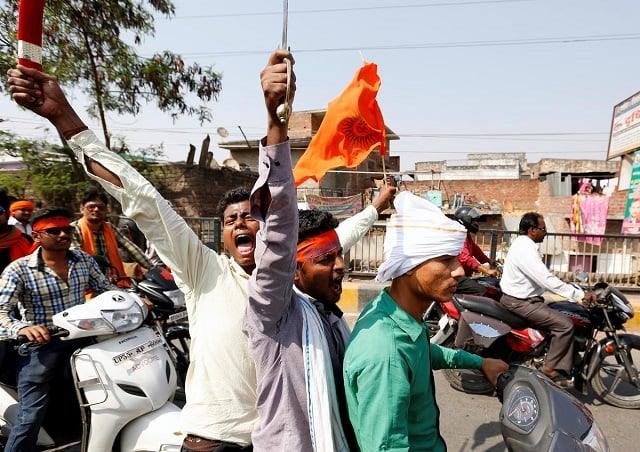Pakistan expressed concern on Saturday as to the growing number of Islamophobic incidents across India and warned that the deliberate incentive of religious hatred for political or ideological purposes violates international human rights obligations in India.
In a press release answering the media questions, the spokesman for the Ministry of Foreign Affairs, Shafqat Ali Khan, said that Pakistan had firmly condemned the targeting of Muslims through hate speeches, discriminatory policies and acts of violence, which would have been carried out with the complicity or silence of the Indian authorities.
“Pakistan calls on the Indian government to maintain the rights and security of all its citizens, whatever the faith,” said the spokesperson, warning that the deliberate incentives of religious hatred for political or ideological ends was in violation of international human rights obligations.
Khan added that such actions, at a time when restraint and reconciliation are the most necessary, undergo more prospects for community harmony and regional stability.
Learn more: The Indian Muslims’ house demolished the song of “Pakistan Zindabad” during the cricket match
The declaration comes in the midst of increased tensions between the two nuclear arms neighbors following the accusations of New Delhi – dropped without proof – Islamabad hike at the attack on Pahalgam in Jammu -et -Cachemire of Indian origin (IIOJK). The Pakistani government has firmly rejected allegations.
Human rights organizations, including the Association for Protection of Civil Rights (APCR), have recorded at least 21 incidents of anti-Muslim violence across India in the days that followed the attack. These include physical assaults against Muslims in cashmere, hate speeches during public rallies and has reported calls for the expulsion of Muslim students from the hostels.
The situation was still ignited by the rise of incendiary music aligned with Hindutva ideology. The songs broadcast widely through platforms like YouTube and WhatsApp have been accused of having encouraged hatred against Muslims. Such a song, Pehle Dharam Pocha (“They first asked questions about religion”), surfaced shortly after Pahalgam’s incident, accusing the Indian Muslims of conspiracy against the Hindus. He collected more than 140,000 views in less than a week.
Other songs such as Ab ek Nahi Huye toh Kat Jaaoge (“If you are not united now, you will be shot”) and Jago Hindu Jago (“Wake Up, Hindu”) called on the Hindus to identify “treats in the country” – a sentence largely considered as a wilted reference to Muslims.
In addition to the online hatred campaign, the Gujarat authorities have demolished around 2,000 huts, which, according to officials, were illegally occupied by undocumented migrants from Bangladesh. Activists, however, argue that demolitions are part of a broader scheme of systemic discrimination aimed at portraying Indian Muslims as “foreigners” and pushing them further on the margins of society.
Also read: Pakistan condemns the discourse of Gujarat de Modi as a “reckless provocation”
The demolitions have moved thousands of people, aggravating the precarious living conditions of affected families and contributing to an increasing feeling of insecurity within the community.
The government of Prime Minister Narendra Modi – much considered to be closely aligned with right -wing Hindu nationalist groups – has an increasing criticism for its inability to limit hatred speeches and protect minority communities.
Critics argue that the silence of the State and, in some cases, active participation, anti-Muslim actions, has embraced extremist elements.




